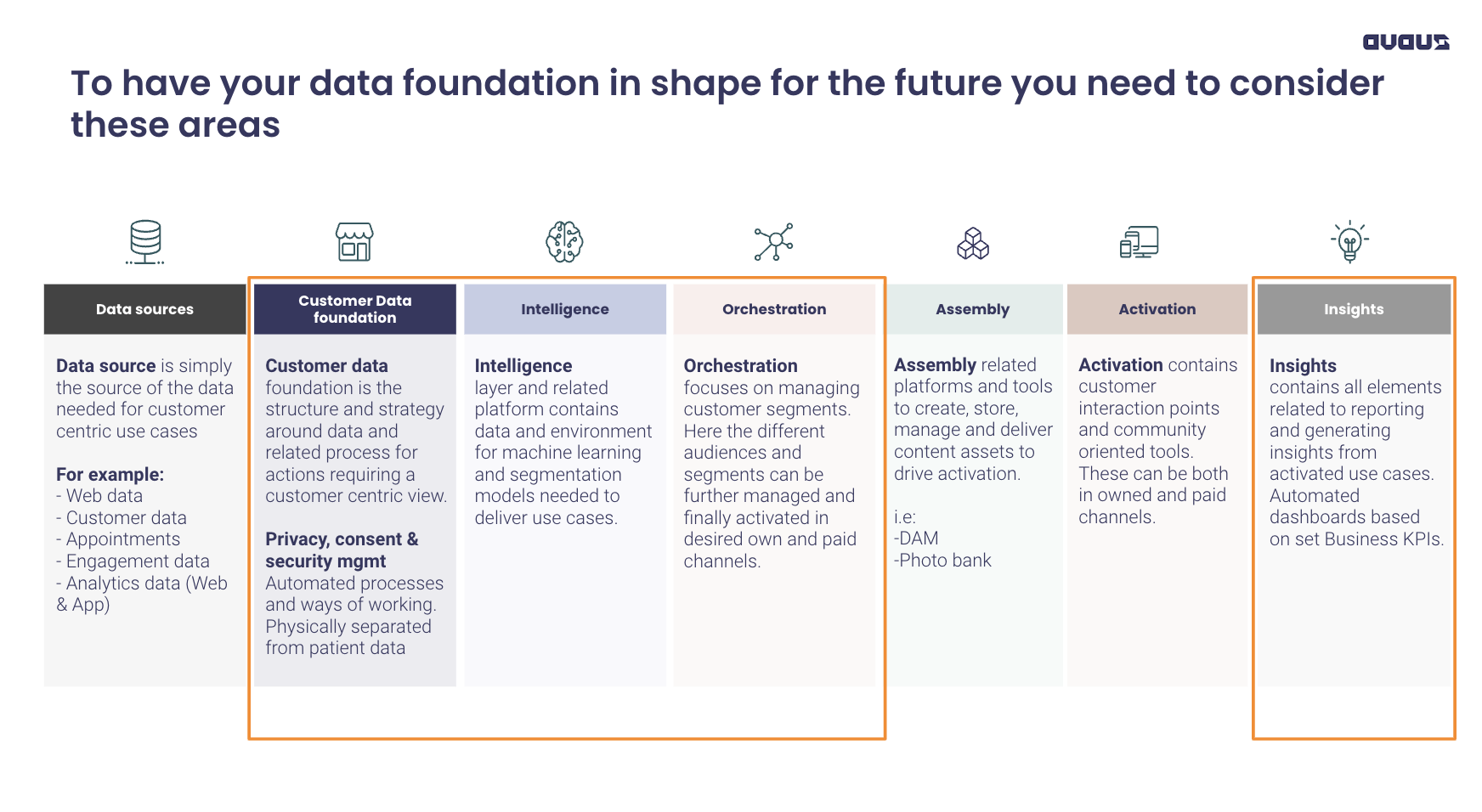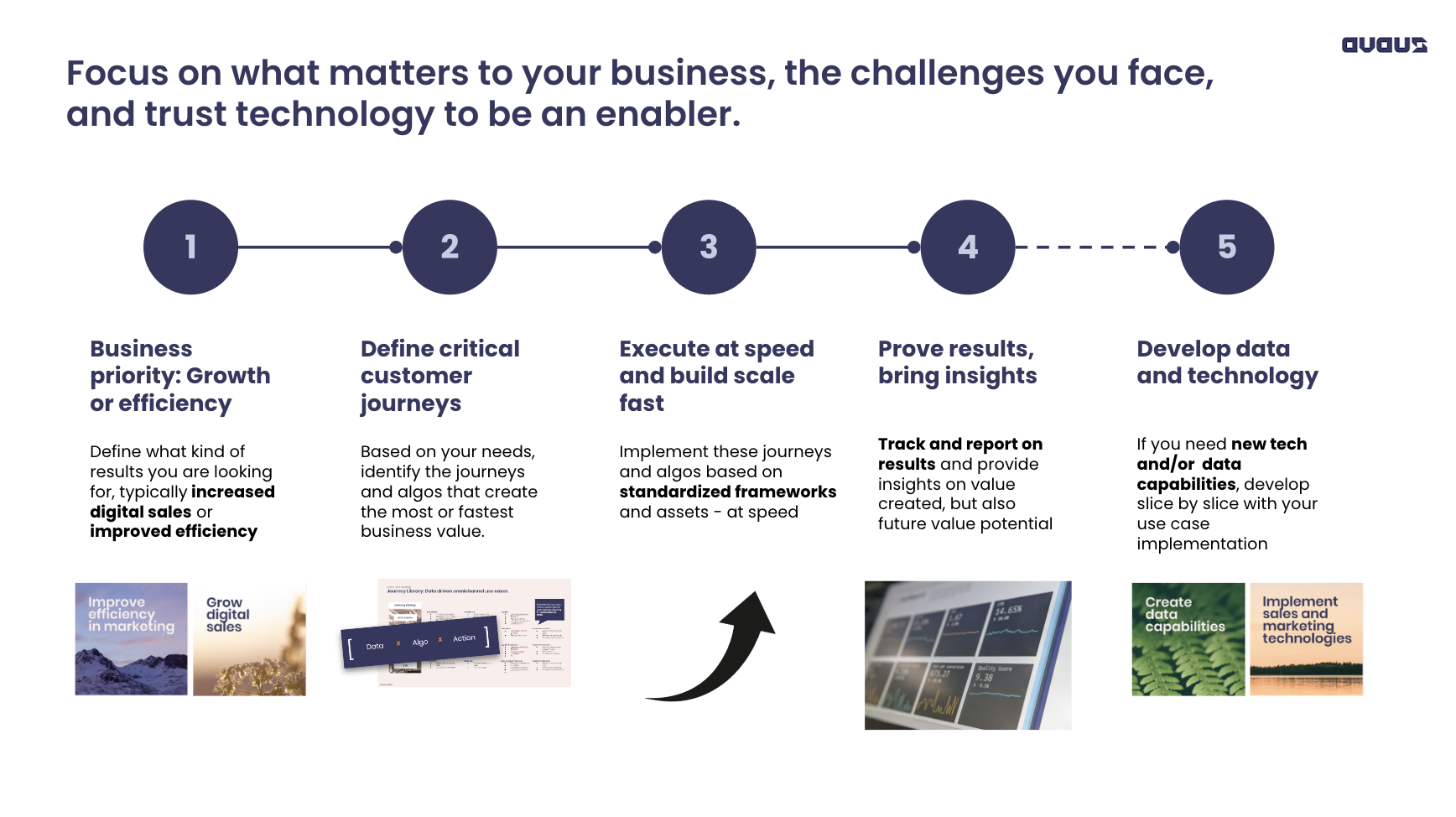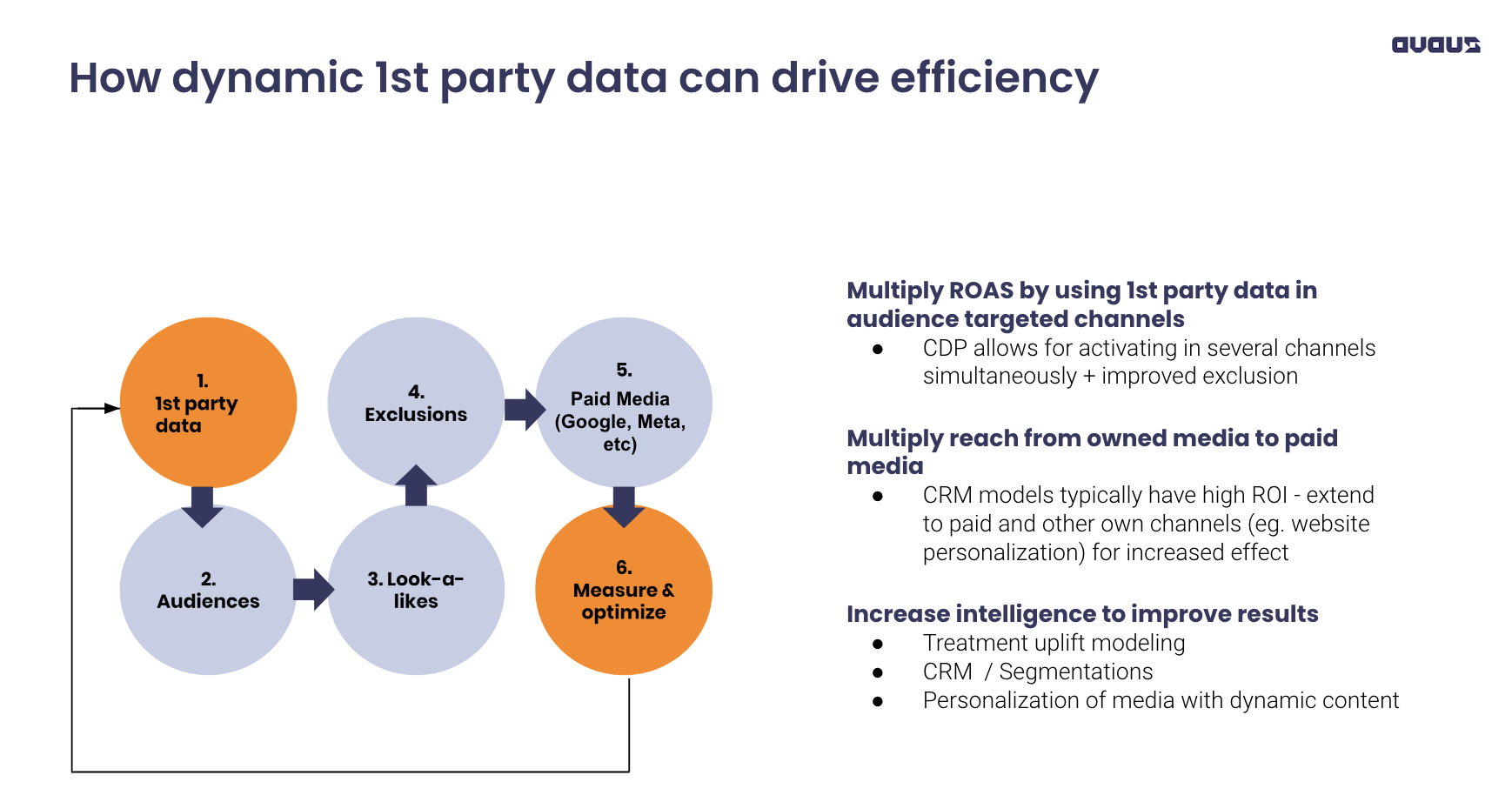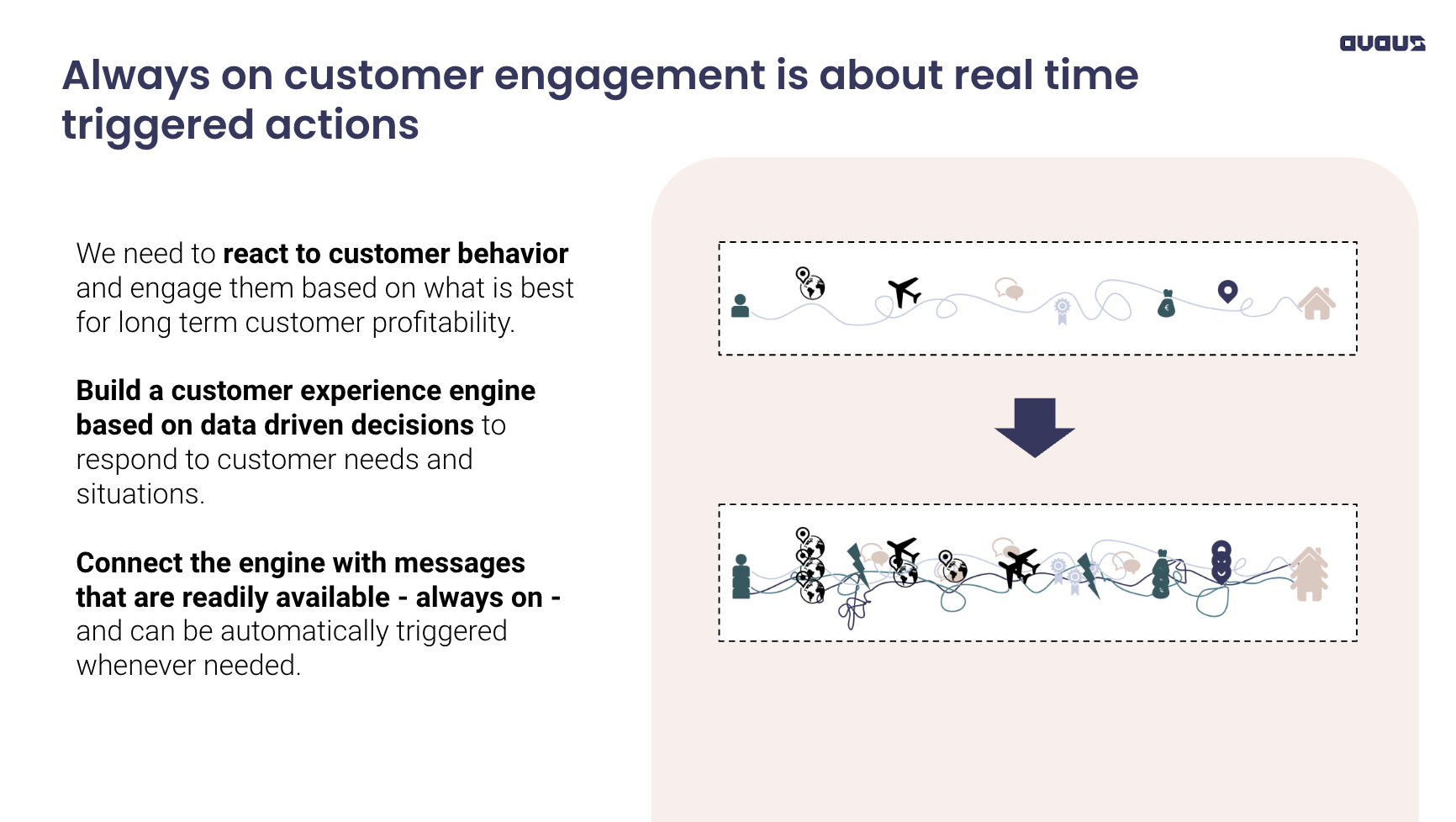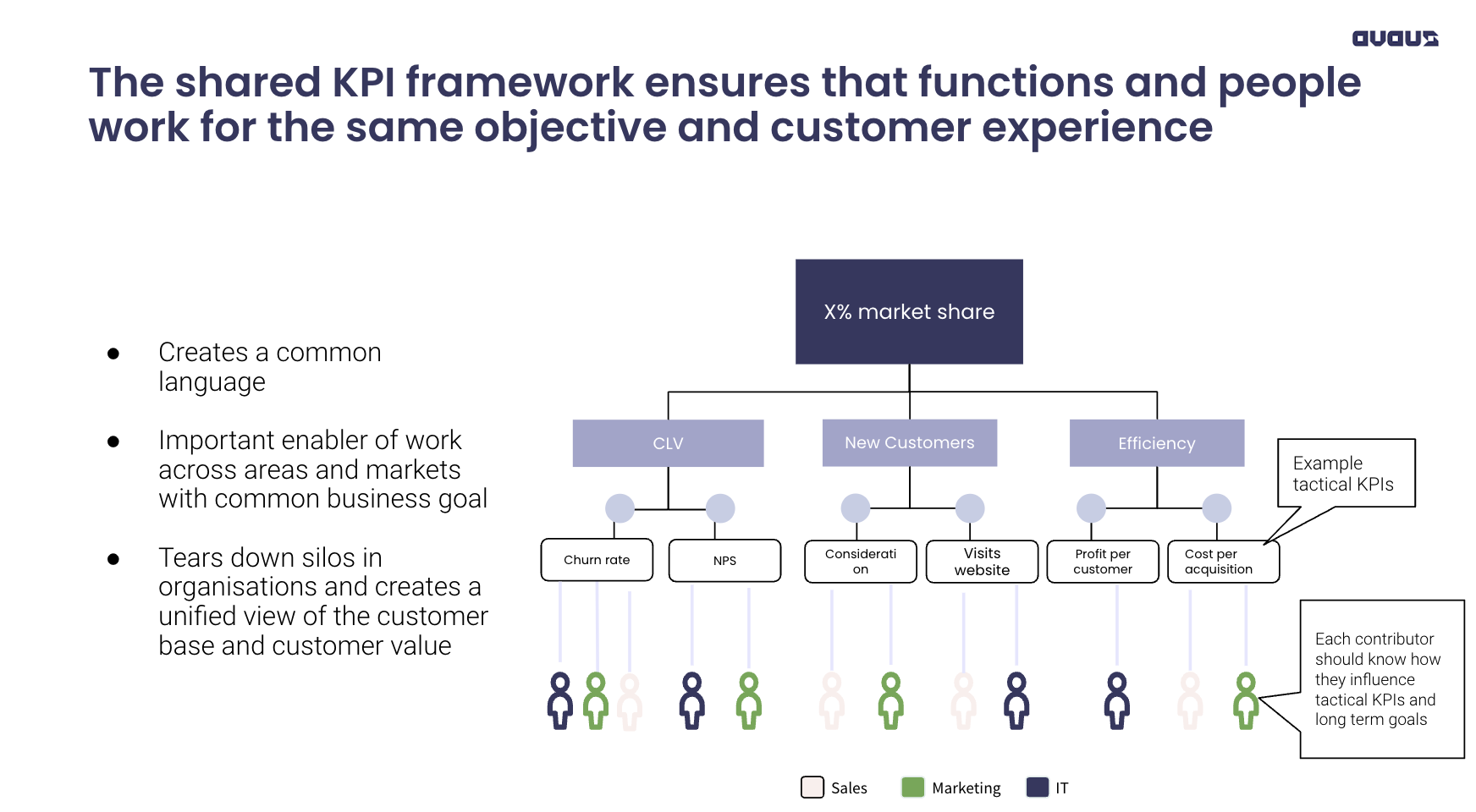To stay ahead in 2025, businesses need to focus on five key areas for marketing success. In this blog post, we’ll show how these five aspects can help your company thrive in a competitive landscape.
You can also watch our webinar on this topic, available on demand here.
1. Take care of your data foundation
The foundation of your marketing efforts rests on how well you manage and utilize your data. Without a strong data foundation, scaling automation and AI and improving efficiency becomes impossible. This includes seamlessly integrating various data sources, such as customer data, web analytics, and engagement metrics. To future proof your success, you need to use data to personalize, automate, and predict customer behavior.
Failure to invest in data infrastructure now will allow competitors to outpace your efforts, and your customers will begin to expect a data-driven experience. In short, getting your data foundation in order is not just a technical requirement but a competitive necessity.
The orange boxes highlight the areas for which we at Avaus have built ready-made cloud native components for multiple needs or data functions. Why in these areas? Because we see them usually missing from our clients architecture. The components provide a faster time to market and value. Read more about the profile component to centralize your customer data, as one example.
2. Use case prioritization 101
With endless possibilities for how data can be used to enhance marketing and sales, businesses often struggle to focus on the right areas. The key is to prioritize use cases that deliver the highest business impact, both in terms of feasibility and return on investment.
A use-case-driven approach ensures that you’re focusing on the most critical business problems. Start small—perhaps with pilot projects that address urgent issues—and expand from there. Don’t wait for everything to be perfect. Solving 80% of the problem today is better than trying to achieve perfection years later.
3. Master omnichannel
In today’s fragmented digital landscape, omnichannel strategies that leverage first-party data are crucial. With the decline of third-party cookies, you need to use dynamic first-party data to enhance marketing efficiency across various channels such as email, social media, and paid media platforms. This real-time data not only improves customer targeting but also increases Return on Ad Spend (ROAS).
Omnichannel marketing enables your business to reach customers wherever they are and whatever device they are using. The integration of customer data allows for a personalized and cohesive brand experience, ultimately driving higher engagement and conversions.
4. Always on engagement
Customer journeys are rarely linear. In reality, customers interact with brands at different touchpoints, sometimes in unpredictable ways. Always-on customer engagement ensures that your company can respond to customer behaviors in real-time, with automated triggers that provide relevant messaging at the right moments.
Building a portfolio of customer interactions allows you to automate a large portion of the customer experience, enabling real-time, data-driven decisions that enhance long-term customer profitability. This shift from manual campaigns to an automated, always-on model frees up time for more strategic initiatives and improves the overall customer experience.
5. Share objectives and KPIs for success
Having clear, shared objectives is critical for aligning departments and ensuring that everyone is working towards the same business goals. Establishing a robust Key Performance Indicator (KPI) framework not only helps focus efforts on what’s important but also allows teams across sales, marketing, and IT to work in harmony. By defining and tracking the right KPIs, you can measure both short-term tactical success and long-term strategic progress.
Moreover, a well-structured KPI framework breaks down organizational silos, creating a unified view of customer value and helping different teams understand how they contribute to overall business objectives.
To summarize
To future-proof your business for 2025, it’s essential to focus on strengthening your data foundation, prioritizing the right use cases, mastering omnichannel strategies, and embracing always-on customer engagement. By doing so, you can drive efficiency, improve customer experiences, and ensure that all teams are aligned with shared business objectives. Automation and data-driven decision-making will be key enablers in staying competitive in the coming years.
Feel like discussing this topic further? Feel free to contact us!
Contact us